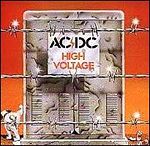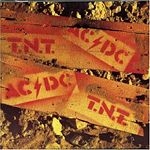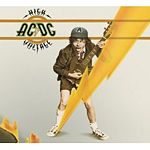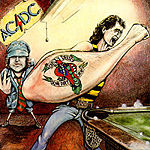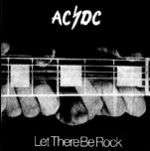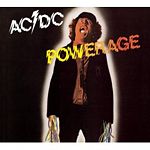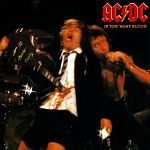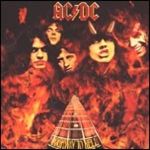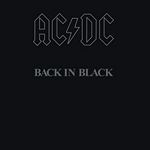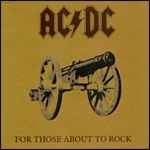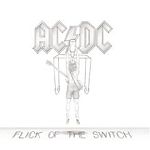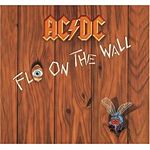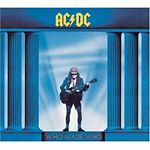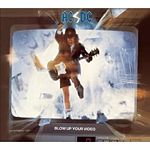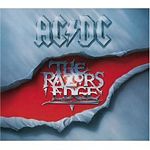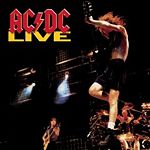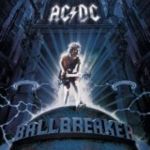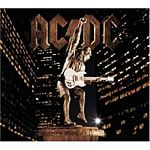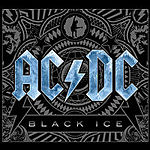Difference between revisions of "AC/DC"
Goreripper (talk | contribs) |
Goreripper (talk | contribs) |
||
| (36 intermediate revisions by 2 users not shown) | |||
| Line 1: | Line 1: | ||
{{Infobox musical artist | |||
| name = AC/DC | |||
| image = | |||
| alt = | |||
| caption = | |||
| image_size = | |||
| landscape = <!-- yes, if wide image, otherwise leave blank --> | |||
| background = group_or_band | |||
| alias = | |||
| origin = Sydney, NSW | |||
| genre = Hard rock | |||
| years_active = 1973 - present | |||
| label = Alberts, Sony | |||
| associated_acts = Guns N Roses, [[Heaven]], [[Boss]], Easybeats, Dio, AIIZ, Geordie, Fraternity, Home, Bandit, Velvet Underground, Uriah Heep, Buster Brown, Masters Apprentices, Rabbit, The Valentines, Rhinobucket, Kantuckee, Tantrum | |||
| website = http://www.acdc.com | |||
| current_members = Brian Johnson, Chris Slade, Cliff Williams, Angus Young, Stephen Young | |||
| past_members = see left | |||
}} | |||
===Band members=== | ===Band members=== | ||
| Line 6: | Line 25: | ||
**Cliff Williams (bass) | **Cliff Williams (bass) | ||
**Angus Young (guitar) | **Angus Young (guitar) | ||
** | **Stephen Young (guitar) | ||
*Former members | *Former members | ||
**Chris Slade (drums) | **W. Axl Rose (vocals) 2016 | ||
**Malcolm Young (guitar) 1973 - 2014 ''d. 18/11/17'' | |||
**Chris Slade (drums) 1989 - 2004, 2014 - 2017 | |||
**Steve Young (guitar) (1988) | **Steve Young (guitar) (1988) | ||
**Simon Wright (drums) (1983 - 1989) | **Simon Wright (drums) (1983 - 1989) | ||
**Bon Scott (vocals) (1974 - 1980) | **Bon Scott (vocals) (1974 - 1980) ''d. 19/2/80'' | ||
**Mark Evans (bass) (1975 - 1977) | **Mark Evans (bass) (1975 - 1977) | ||
**Bruce Howe (bass) (1975) | **Bruce Howe (bass) (1975) | ||
| Line 19: | Line 40: | ||
**Russell Coleman (drums) (1974) | **Russell Coleman (drums) (1974) | ||
**Rob Bailey (bass) (1974) | **Rob Bailey (bass) (1974) | ||
**George Young (bass) | **George Young (bass) 1973 - 1974 ''d. 22/10/17'' | ||
**John Proud (drums) (1974) | **John Proud (drums) (1974) | ||
**Peter Clack (drums) (1974) | **Peter Clack (drums) (1974) | ||
**Dave Evans (vocals) (1973 - 1974) | **Dave Evans (vocals) (1973 - 1974) | ||
**Noel Taylor (drums) (1974) | **Noel Taylor (drums) (1974) | ||
**Neil Smith (bass) (1974) | **Neil Smith (bass) (1974) d. ''7/4/13'' | ||
**Larry van Kreidt (bass) (1973 - 1974, 1975) | **Larry van Kreidt (bass) (1973 - 1974, 1975) | ||
**Ron Carpenter (drums) (1974) | **Ron Carpenter (drums) (1974) | ||
| Line 39: | Line 60: | ||
===Band information=== | ===Band information=== | ||
AC/DC is a band that needs no introduction. As one of the most famous and successful rock bands of all time there is hardly anyone who could not have heard of them. Despite this, much of the band’s history remains muddy, mostly due to the Young brothers’ taciturn attitude to most of AC/DC’s former members, managers and others and their general reluctance to speak in depth about some aspects of the group to all but a few. To this day | AC/DC is a band that needs no introduction. As one of the most famous and successful rock bands of all time there is hardly anyone who could not have heard of them. Despite this, much of the band’s history remains muddy, mostly due to the Young brothers’ taciturn attitude to most of AC/DC’s former members, managers and others and their general reluctance to speak in depth about some aspects of the group to all but a few. To this day there remains a cloud over the recording personnel on the debut album and controversy over several other events including the death of Bon Scott. | ||
Malcolm and Angus Young formed AC/DC in November 1973 following the older brother’s stint in a Newcastle band called '''Velvet Underground''' that also featured future members of '''TMG'''. Angus had formerly played with '''Kantuckee''' and '''Tantrum'''. Drummer Colin Burgess from the '''Masters Apprentices''', American-born jazz bass player Larry van Kriedt and singer Dave Evans made up the first complete line-up and AC/DC played their first show in Sydney on New Year’s Eve 1973. Burgess was either sacked or left soon afterward and a string of drummers continued until well into 1975. Van Kriedt had also departed by February 74; his replacement Neil Smith lasted until April when the line-up solidified with Rob Bailey (bass) and Peter Clack (drums) joining the band. Van Kreidt went on to a somewhat distinguished career in jazz and world music and during the 90s was a member of '''Def FX'''. | |||
At first harbouring a glam-rock look, AC/DC dispensed with it when learning of Skyhooks’ (a band they apparently despised) predilection for it and in September 1974 after the release of the single “Can I Sit Next to You, Girl” Evans was removed from the group due to his apparent unsuitability and constant personal clashes with manager Dennis Laughlin. | |||
Evans was replaced by Bon Scott, who was known to them through his work with '''Fraternity''' and the '''Valentines'''. Bailey was fired in November as the band | Evans was replaced by Bon Scott, who was known to them through his work with '''Fraternity''' and the '''Valentines'''. Bailey was fired in November as the band recorded ''High Voltage''. The album features Malcolm playing lead guitar on two tracks ("Little Lover" and "Soul Stripper") as well as bass. George Young and Rob Bailey also played some bass tracks. Drumming was shared between Clack and John Proud (one track each) and Tony Currenti from '''The 69ers'''. | ||
In January 1975 AC/DC was booked to appear at the Sunbury Festival but after a physical altercation with '''Deep Purple’s''' roadcrew they refused to play and returned to | In January 1975 AC/DC was booked to appear at the Sunbury Festival but after a physical altercation with '''Deep Purple’s''' roadcrew they refused to play and returned to Melbourne the same night. '''Buster Brown''' drummer Phil Rudd had joined the band by now, with Mark Evans linking up a few weeks later after short stints from several others including Bruce Howe of '''Fraternity'''. | ||
Soon after, AC/DC recorded ''TNT'' and in early 1976 signed with Atlantic Records and concentrated their efforts on the worldwide market by heading to England. At first marketing themselves as a punk band, AC/DC was successful almost immediately. ''High Voltage''' and ''TNT'' were re-packaged and issued as a single album (''High Voltage'', although most of the tracks were from ''TNT'') and the band began a relentless cycle of touring and recording that would last until well into the 1980s. Following the recording of the early masterpiece ''Let There Be Rock'', the tensions between Evans and the Youngs resulted in the bassist being dumped from the line-up. Cliff Williams, a British musician who had played in '''Bandit''' and the prog band '''Home''', took his place. Williams’ inability to score an Australian work visa would mean AC/DC was unable to play in their home country until 1980. Evans later played in bands like [[Heaven]] and [[Boss]] and a range of rhythm and blues bands. He was famously snubbed during AC/DC's induction into the Rock N Roll Hall of Fame in 2003 when Malcolm claimed that the band only really started after they got rid of him. | Soon after, AC/DC recorded ''TNT'' and in early 1976 signed with Atlantic Records and concentrated their efforts on the worldwide market by heading to England. At first marketing themselves as a punk band, AC/DC was successful almost immediately. ''High Voltage''' and ''TNT'' were re-packaged and issued as a single album (''High Voltage'', although most of the tracks were from ''TNT'') and the band began a relentless cycle of touring and recording that would last until well into the 1980s. Following the recording of the early masterpiece ''Let There Be Rock'', the tensions between Evans and the Youngs resulted in the bassist being dumped from the line-up. Cliff Williams, a British musician who had played in '''Bandit''' and the prog band '''Home''', took his place. Williams’ inability to score an Australian work visa would mean AC/DC was unable to play in their home country until 1980. Evans later played in bands like [[Heaven]] and [[Boss]] and a range of rhythm and blues bands. He was famously snubbed during AC/DC's induction into the Rock N Roll Hall of Fame in 2003 when Malcolm claimed that the band only really started after they got rid of him. | ||
In the meantime, AC/DC concentrated their efforts on conquering the US, a mammoth undertaking that almost ended the band more than once. However, the slicker production and more commercial direction of 1979’s ''Highway to Hell'' finally opened the door to North American airplay and by the end of the year AC/DC was on the way to becoming one the biggest bands in the world. | In the meantime, AC/DC concentrated their efforts on conquering the US, a mammoth undertaking that almost ended the band more than once. However, the slicker production and more commercial direction of 1979’s ''Highway to Hell'' finally opened the door to North American airplay and by the end of the year AC/DC was on the way to becoming one the biggest bands in the world. | ||
As work began on the next album however, Bon Scott was found dead in a car in London on the morning on February 19, 1980. The circumstances of his death were never fully explained although the official cause was listed as acute alcohol poisoning. He was cremated and his ashes were interred in Fremantle Cemetery. In September 2005 his grave site was classified as a heritage site by the National Trust. | As work began on the next album however, Bon Scott was found dead in a car in London on the morning on February 19, 1980. The circumstances of his death were never fully explained although the official cause was listed as acute alcohol poisoning. He was cremated and his ashes were interred in Fremantle Cemetery. In September 2005 his grave site was classified as a heritage site by the National Trust. | ||
After briefly considering disbanding, AC/DC continued and in April the group had chosen Brian Johnson as Scott’s replacement. Johnson had been the leader of British band '''Geordie''' with whom he had recorded four album between 1973 and 1978. He had just reformed that group when he was asked to audition for AC/DC. | After briefly considering disbanding, AC/DC continued and in April the group had chosen Brian Johnson as Scott’s replacement. Johnson had been the leader of British band '''Geordie''' with whom he had recorded four album between 1973 and 1978 and who had met Bon Scott when '''Fraternity''' had toured with them in the early 70s. He had just reformed that group when he was asked to audition for AC/DC. | ||
The group began work on ''Back in Black'' immediately. Released only six months after Scott’s death, the album was an instant worldwide hit and has sold consistently and in enormous numbers ever since. By 2007 ''Back in Black’s'' sales had reached 42 million worldwide, surpassing ''Their Greatest Hits 1971-1975'' by '''Eagles''' and thus becoming the second highest selling album of all time after '''Michael Jackson’s''' ''Thriller''. | The group began work on ''Back in Black'' immediately. Released only six months after Scott’s death, the album was an instant worldwide hit and has sold consistently and in enormous numbers ever since. By 2007 ''Back in Black’s'' sales had reached 42 million worldwide, surpassing ''Their Greatest Hits 1971-1975'' by '''Eagles''' and thus becoming the second highest selling album of all time after '''Michael Jackson’s''' ''Thriller''. | ||
| Line 64: | Line 88: | ||
''The Razors Edge'' featured ex-'''Uriah Heep''' and '''Gary Numan''' drummer Chris Slade, who had been hired to replace Wright. Wright subsequently joined '''Dio''' and has also worked with '''Rhinobucket''', '''UFO''' and '''MSG'''. ''The Razors Edge'' became AC/DC’s most successful album since ''For Those About to Rock'' and produced three Australian Top 40 singles. | ''The Razors Edge'' featured ex-'''Uriah Heep''' and '''Gary Numan''' drummer Chris Slade, who had been hired to replace Wright. Wright subsequently joined '''Dio''' and has also worked with '''Rhinobucket''', '''UFO''' and '''MSG'''. ''The Razors Edge'' became AC/DC’s most successful album since ''For Those About to Rock'' and produced three Australian Top 40 singles. | ||
Rudd returned to the band for ''Ballbreaker'', a cleaner, blusier-sounding album thanks to Rick Rubin’s production. Five years later their 15th studio album ''Stiff Upper Lip'' appeared. In the period since then, the band was inducted into the Rock N Roll Hall of Fame (March 2003) , played at the concert in Toronto with the '''Rolling Stones''' and '''Rush''' that drew a crowd of 500,000 and had streets named after them in Melbourne and Leganes, Spain. Johnson has also been working on a stage musical about Helen of Troy since 2003. The band’s entire catalogue was remastered and re-released by Sony between 2003 and 2007. | Rudd returned to the band for ''Ballbreaker'', a cleaner, blusier-sounding album thanks to Rick Rubin’s production. Five years later their 15th studio album ''Stiff Upper Lip'' appeared. In the period since then, the band was inducted into the Rock N Roll Hall of Fame (March 2003) , played at the concert in Toronto with the '''Rolling Stones''' and '''Rush''' that drew a crowd of 500,000 and had streets named after them in Melbourne and Leganes, Spain. Johnson has also been working on a stage musical about Helen of Troy since 2003. The band’s entire catalogue was remastered and re-released by Sony between 2003 and 2007. Murray Engleheart's comprehensive biography of the band ''AC/DC: Maximum Rock n Roll'' was released in 2008; Johnson's autobiographical ''Rockers and Rollers'' appeared in early 2010. | ||
AC/DC is the tenth top-selling music artist in the US and was still listed as Australia’s sixth biggest grossing entertainers in 2006. | AC/DC is the tenth top-selling music artist in the US and was still listed as Australia’s sixth biggest grossing entertainers in 2006. | ||
''Black Ice'' was released in October 2008 and sold 1.4 million copies worldwide in its first week of release. Within a month it had shifted more than 5 million copies, making it the highest-selling album of the year. Shows on AC/DC’s upcoming Australian tour in 2010 sold out within minutes breaking all previous sales records. The tour eventually sold more than 600,000 seats. The group was awarded a Grammy for Best Hard Rock Performance (for 'War Machine' off ''Black Ice'') in 2010. Their soundtrack album to the 2010 film ''Iron Man 2'' debuted at #1 on the British chart on April 19. Malcolm Young was sidelined from the band in early 2014 with health issues just as AC/DC was preparing to begin work on a new album. After rumours of the group disbanding, AC/DC announced they were continuing with Stevie Young taking Malcolm's place and a new album was completed in June 2014. Phil Rudd released his solo album ''Head Job'' in September. Late that month the band officially announced that Malcolm was being treated for dementia and was no longer a member of AC/DC. Rudd was arrested on conspiracy to murder charges on November 8, 2014 but those charges were dropped the following day; he was dumped from the band and replaced by Chris Slade. Rudd pleaded guilty to drug possession and procurement of murder charges in New Zealand in April 2015, the same week AC/DC announced an Australian tour for the end of the year. In March 2016 Brian Johnson declared that he was no longer able to tour with the band due to the threat of permanent hearing loss. Several shows on their North American tour were cancelled. It was subsequently revealed that Johnson had been fired. He was controversially replaced two weeks later by Axl Rose of '''Guns N Roses''' for the remainder of the band's touring commitments. Williams announced he would be retiring at the conclusion of the tour, which wound up in September. | |||
Malcolm Young died on November 18, 2017, a month after George (22/10/17). Angus and Stevie Young, Johnson, Rudd and Williams reconvened during 2018 and ''Power Up'' was released in November 2020. | |||
===Discography=== | ===Discography=== | ||
| Line 75: | Line 101: | ||
{| | {| | ||
! width="40"| | ! width="40"| | ||
! width="220"| | ! width="220"| | ||
| Line 173: | Line 198: | ||
| 2008 | | 2008 | ||
| '''''Black Ice''''' | | '''''Black Ice''''' | ||
| Sony | |||
|- | |||
| | |||
| 2010 | |||
| '''''Iron Man 2''''' | |||
| Sony | |||
|- | |||
| | |||
| 2012 | |||
| '''''Live at River Plate''''' | |||
| Sony | |||
|- | |||
| | |||
| 2014 | |||
| '''''Rock or Bust''''' | |||
| Sony | |||
|- | |||
| | |||
| 2020 | |||
| '''''Power Up''''' | |||
| Sony | | Sony | ||
|- | |- | ||
|} | |} | ||
[[Category:Band List]] | |||
[[Category:Bands from New South Wales|AC/DC]] | [[Category:Bands from New South Wales|AC/DC]] | ||
[[Category:Bands from Sydney|AC/DC]] | [[Category:Bands from Sydney|AC/DC]] | ||
Latest revision as of 17:06, 8 December 2022
AC/DC | |
|---|---|
| Origin | Sydney, NSW |
| Genres | Hard rock |
| Years active | 1973 - present |
| Labels | Alberts, Sony |
| Associated acts | Guns N Roses, Heaven, Boss, Easybeats, Dio, AIIZ, Geordie, Fraternity, Home, Bandit, Velvet Underground, Uriah Heep, Buster Brown, Masters Apprentices, Rabbit, The Valentines, Rhinobucket, Kantuckee, Tantrum |
| Website | http://www.acdc.com |
| Members | Brian Johnson, Chris Slade, Cliff Williams, Angus Young, Stephen Young |
| Past members | see left |
Band members
- Current line-up
- Brian Johnson (vocals)
- Phil Rudd (drums)
- Cliff Williams (bass)
- Angus Young (guitar)
- Stephen Young (guitar)
- Former members
- W. Axl Rose (vocals) 2016
- Malcolm Young (guitar) 1973 - 2014 d. 18/11/17
- Chris Slade (drums) 1989 - 2004, 2014 - 2017
- Steve Young (guitar) (1988)
- Simon Wright (drums) (1983 - 1989)
- Bon Scott (vocals) (1974 - 1980) d. 19/2/80
- Mark Evans (bass) (1975 - 1977)
- Bruce Howe (bass) (1975)
- Paul Matters (bass) (1975)
- Tony Currenti (drums) (1974)
- Russell Coleman (drums) (1974)
- Rob Bailey (bass) (1974)
- George Young (bass) 1973 - 1974 d. 22/10/17
- John Proud (drums) (1974)
- Peter Clack (drums) (1974)
- Dave Evans (vocals) (1973 - 1974)
- Noel Taylor (drums) (1974)
- Neil Smith (bass) (1974) d. 7/4/13
- Larry van Kreidt (bass) (1973 - 1974, 1975)
- Ron Carpenter (drums) (1974)
- Colin Burgess (drums) (1973 - 1974)
Website
Formed
Sydney, NSW, 1973
Band information
AC/DC is a band that needs no introduction. As one of the most famous and successful rock bands of all time there is hardly anyone who could not have heard of them. Despite this, much of the band’s history remains muddy, mostly due to the Young brothers’ taciturn attitude to most of AC/DC’s former members, managers and others and their general reluctance to speak in depth about some aspects of the group to all but a few. To this day there remains a cloud over the recording personnel on the debut album and controversy over several other events including the death of Bon Scott.
Malcolm and Angus Young formed AC/DC in November 1973 following the older brother’s stint in a Newcastle band called Velvet Underground that also featured future members of TMG. Angus had formerly played with Kantuckee and Tantrum. Drummer Colin Burgess from the Masters Apprentices, American-born jazz bass player Larry van Kriedt and singer Dave Evans made up the first complete line-up and AC/DC played their first show in Sydney on New Year’s Eve 1973. Burgess was either sacked or left soon afterward and a string of drummers continued until well into 1975. Van Kriedt had also departed by February 74; his replacement Neil Smith lasted until April when the line-up solidified with Rob Bailey (bass) and Peter Clack (drums) joining the band. Van Kreidt went on to a somewhat distinguished career in jazz and world music and during the 90s was a member of Def FX.
At first harbouring a glam-rock look, AC/DC dispensed with it when learning of Skyhooks’ (a band they apparently despised) predilection for it and in September 1974 after the release of the single “Can I Sit Next to You, Girl” Evans was removed from the group due to his apparent unsuitability and constant personal clashes with manager Dennis Laughlin.
Evans was replaced by Bon Scott, who was known to them through his work with Fraternity and the Valentines. Bailey was fired in November as the band recorded High Voltage. The album features Malcolm playing lead guitar on two tracks ("Little Lover" and "Soul Stripper") as well as bass. George Young and Rob Bailey also played some bass tracks. Drumming was shared between Clack and John Proud (one track each) and Tony Currenti from The 69ers.
In January 1975 AC/DC was booked to appear at the Sunbury Festival but after a physical altercation with Deep Purple’s roadcrew they refused to play and returned to Melbourne the same night. Buster Brown drummer Phil Rudd had joined the band by now, with Mark Evans linking up a few weeks later after short stints from several others including Bruce Howe of Fraternity.
Soon after, AC/DC recorded TNT and in early 1976 signed with Atlantic Records and concentrated their efforts on the worldwide market by heading to England. At first marketing themselves as a punk band, AC/DC was successful almost immediately. High Voltage' and TNT were re-packaged and issued as a single album (High Voltage, although most of the tracks were from TNT) and the band began a relentless cycle of touring and recording that would last until well into the 1980s. Following the recording of the early masterpiece Let There Be Rock, the tensions between Evans and the Youngs resulted in the bassist being dumped from the line-up. Cliff Williams, a British musician who had played in Bandit and the prog band Home, took his place. Williams’ inability to score an Australian work visa would mean AC/DC was unable to play in their home country until 1980. Evans later played in bands like Heaven and Boss and a range of rhythm and blues bands. He was famously snubbed during AC/DC's induction into the Rock N Roll Hall of Fame in 2003 when Malcolm claimed that the band only really started after they got rid of him.
In the meantime, AC/DC concentrated their efforts on conquering the US, a mammoth undertaking that almost ended the band more than once. However, the slicker production and more commercial direction of 1979’s Highway to Hell finally opened the door to North American airplay and by the end of the year AC/DC was on the way to becoming one the biggest bands in the world.
As work began on the next album however, Bon Scott was found dead in a car in London on the morning on February 19, 1980. The circumstances of his death were never fully explained although the official cause was listed as acute alcohol poisoning. He was cremated and his ashes were interred in Fremantle Cemetery. In September 2005 his grave site was classified as a heritage site by the National Trust.
After briefly considering disbanding, AC/DC continued and in April the group had chosen Brian Johnson as Scott’s replacement. Johnson had been the leader of British band Geordie with whom he had recorded four album between 1973 and 1978 and who had met Bon Scott when Fraternity had toured with them in the early 70s. He had just reformed that group when he was asked to audition for AC/DC.
The group began work on Back in Black immediately. Released only six months after Scott’s death, the album was an instant worldwide hit and has sold consistently and in enormous numbers ever since. By 2007 Back in Black’s sales had reached 42 million worldwide, surpassing Their Greatest Hits 1971-1975 by Eagles and thus becoming the second highest selling album of all time after Michael Jackson’s Thriller.
As massive as that album has since become, AC/DC’s next album was initially their most successful. For Those About to Rock became their first (and, until 2008, their only) US #1 album and by the end of 1981 had outsold every one of their previous albums. Their live show now included a large bell and cannons, trappings that remain part of their concert appearances to this day, and AC/DC was now one the biggest-drawing live acts in the world.
Following this, however, the group suffered a commercial decline. Alcoholism began to affect the band, particularly Malcolm Young and Phil Rudd and the pair came to blows after the completion of Flick of the Switch, resulting in Rudd being sacked. Former A II Z drummer Simon Wright replaced him for the next three albums.
Flick of the Switch and Fly on the Wall were both considered commercial and artistic failures but Blow Up Your Video marked a return to favour, although Johnson was still suffering from the effects of throat surgery. Malcolm Young stood aside from touring commitments at this point in order to recover from his alcoholism and his nephew Stevie sat in for him for nine months.
The Razors Edge featured ex-Uriah Heep and Gary Numan drummer Chris Slade, who had been hired to replace Wright. Wright subsequently joined Dio and has also worked with Rhinobucket, UFO and MSG. The Razors Edge became AC/DC’s most successful album since For Those About to Rock and produced three Australian Top 40 singles.
Rudd returned to the band for Ballbreaker, a cleaner, blusier-sounding album thanks to Rick Rubin’s production. Five years later their 15th studio album Stiff Upper Lip appeared. In the period since then, the band was inducted into the Rock N Roll Hall of Fame (March 2003) , played at the concert in Toronto with the Rolling Stones and Rush that drew a crowd of 500,000 and had streets named after them in Melbourne and Leganes, Spain. Johnson has also been working on a stage musical about Helen of Troy since 2003. The band’s entire catalogue was remastered and re-released by Sony between 2003 and 2007. Murray Engleheart's comprehensive biography of the band AC/DC: Maximum Rock n Roll was released in 2008; Johnson's autobiographical Rockers and Rollers appeared in early 2010.
AC/DC is the tenth top-selling music artist in the US and was still listed as Australia’s sixth biggest grossing entertainers in 2006.
Black Ice was released in October 2008 and sold 1.4 million copies worldwide in its first week of release. Within a month it had shifted more than 5 million copies, making it the highest-selling album of the year. Shows on AC/DC’s upcoming Australian tour in 2010 sold out within minutes breaking all previous sales records. The tour eventually sold more than 600,000 seats. The group was awarded a Grammy for Best Hard Rock Performance (for 'War Machine' off Black Ice) in 2010. Their soundtrack album to the 2010 film Iron Man 2 debuted at #1 on the British chart on April 19. Malcolm Young was sidelined from the band in early 2014 with health issues just as AC/DC was preparing to begin work on a new album. After rumours of the group disbanding, AC/DC announced they were continuing with Stevie Young taking Malcolm's place and a new album was completed in June 2014. Phil Rudd released his solo album Head Job in September. Late that month the band officially announced that Malcolm was being treated for dementia and was no longer a member of AC/DC. Rudd was arrested on conspiracy to murder charges on November 8, 2014 but those charges were dropped the following day; he was dumped from the band and replaced by Chris Slade. Rudd pleaded guilty to drug possession and procurement of murder charges in New Zealand in April 2015, the same week AC/DC announced an Australian tour for the end of the year. In March 2016 Brian Johnson declared that he was no longer able to tour with the band due to the threat of permanent hearing loss. Several shows on their North American tour were cancelled. It was subsequently revealed that Johnson had been fired. He was controversially replaced two weeks later by Axl Rose of Guns N Roses for the remainder of the band's touring commitments. Williams announced he would be retiring at the conclusion of the tour, which wound up in September.
Malcolm Young died on November 18, 2017, a month after George (22/10/17). Angus and Stevie Young, Johnson, Rudd and Williams reconvened during 2018 and Power Up was released in November 2020.
Discography
Albums:
| 1975 | High Voltage | Albert | |
| 1975 | TNT | Albert | |
| 1976 | High Voltage | Atlantic | |
| 1976 | Dirty Deeds Done Dirt Cheap | Albert | |
| 1977 | Let There Be Rock | Albert | |
| 1978 | Powerage | Albert | |
| 1978 | If You Want Blood... You've Got It | Albert | |
| 1979 | Highway to Hell | Albert | |
| 1980 | Back in Black | Albert | |
| 1981 | For Those About to Rock | Albert | |
| 1983 | Flick of the Switch | Albert | |
| 1985 | Fly on the Wall | Albert | |
| 1986 | Who Made Who | Albert | |
| 1987 | Blow Up Your Video | Albert | |
| 1990 | The Razors Edge | Atlantic | |
| 1992 | Live | Atlantic | |
| 1995 | Ballbreaker | Sony | |
| 2000 | Stiff Upper Lip | Sony | |
| 2008 | Black Ice | Sony | |
| 2010 | Iron Man 2 | Sony | |
| 2012 | Live at River Plate | Sony | |
| 2014 | Rock or Bust | Sony | |
| 2020 | Power Up | Sony |
